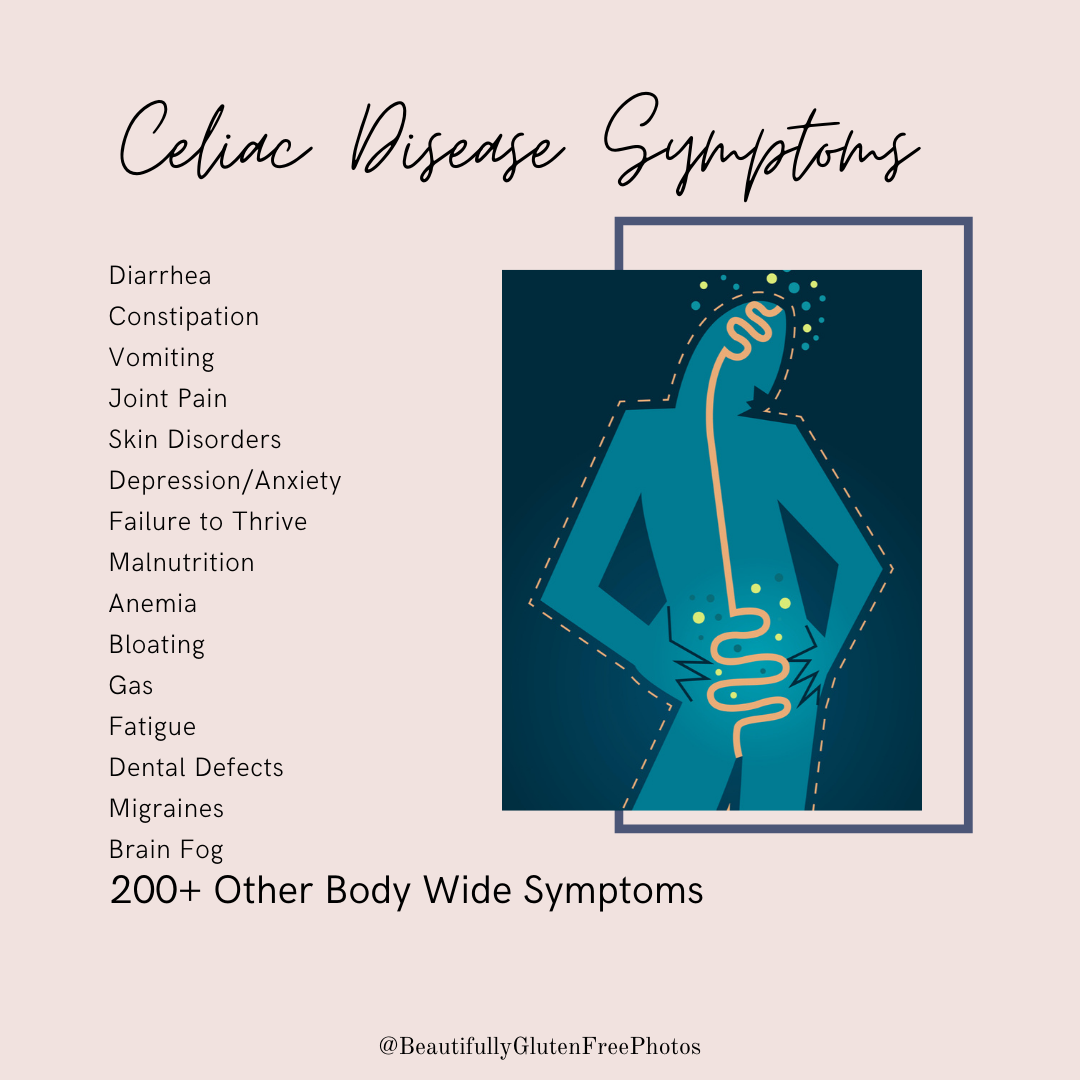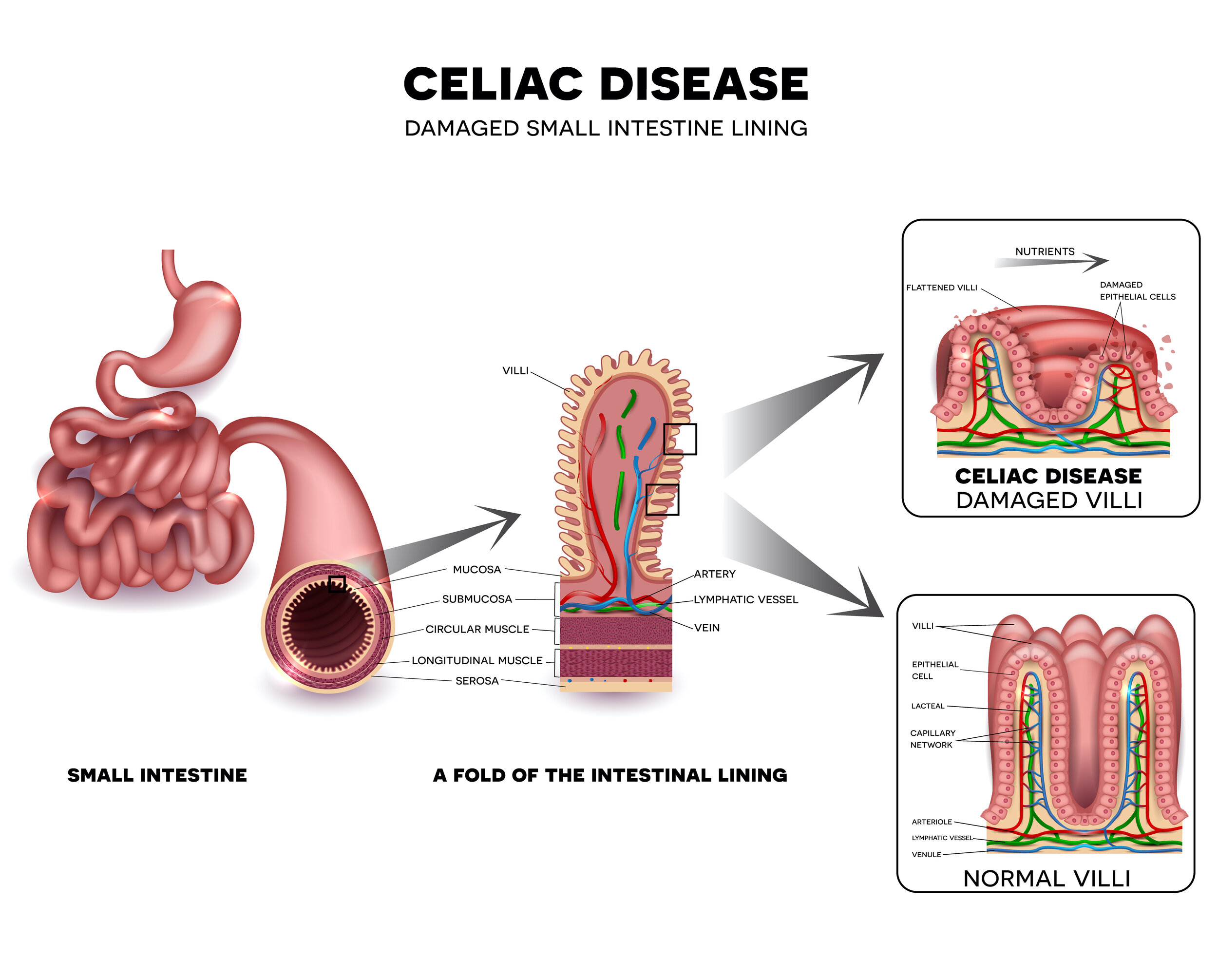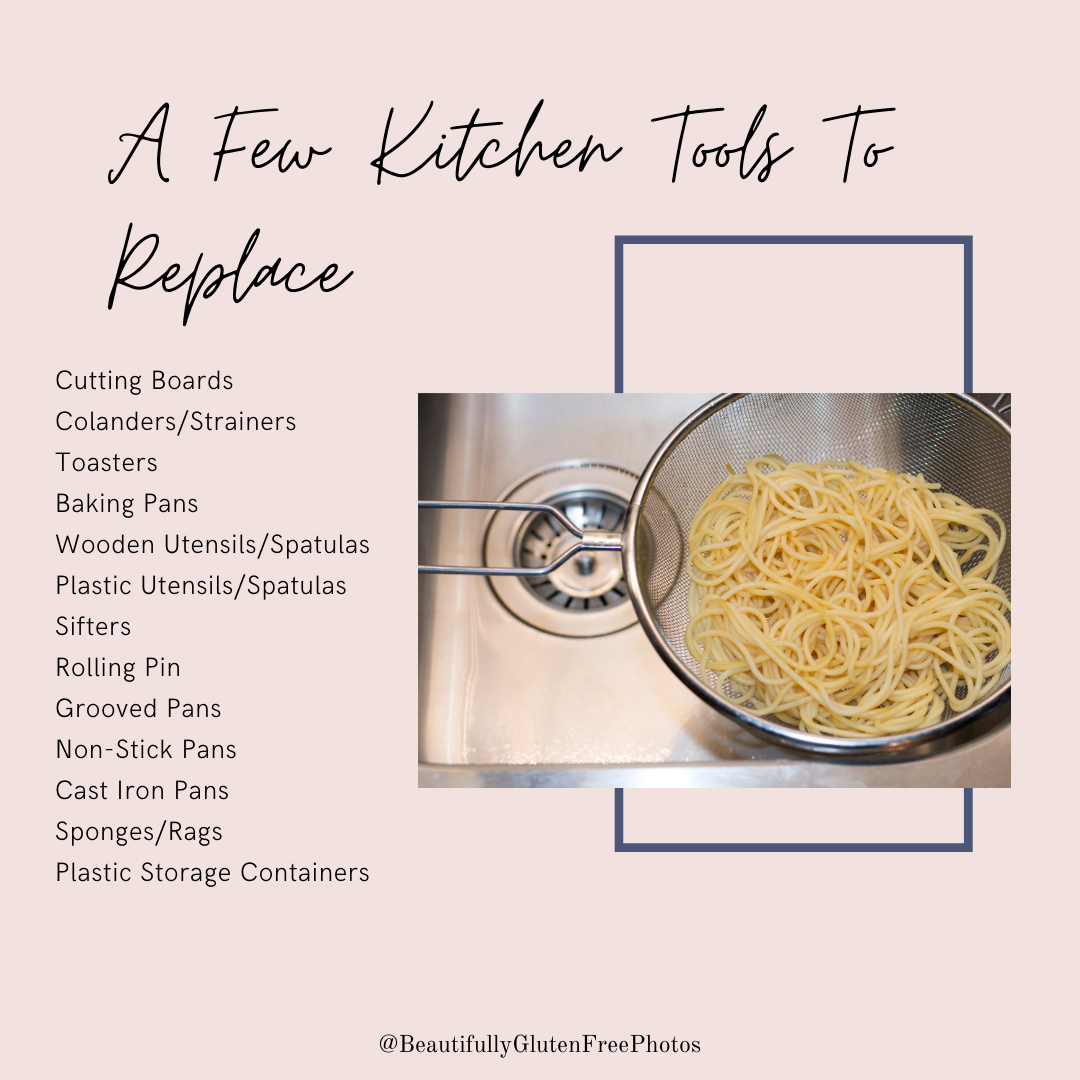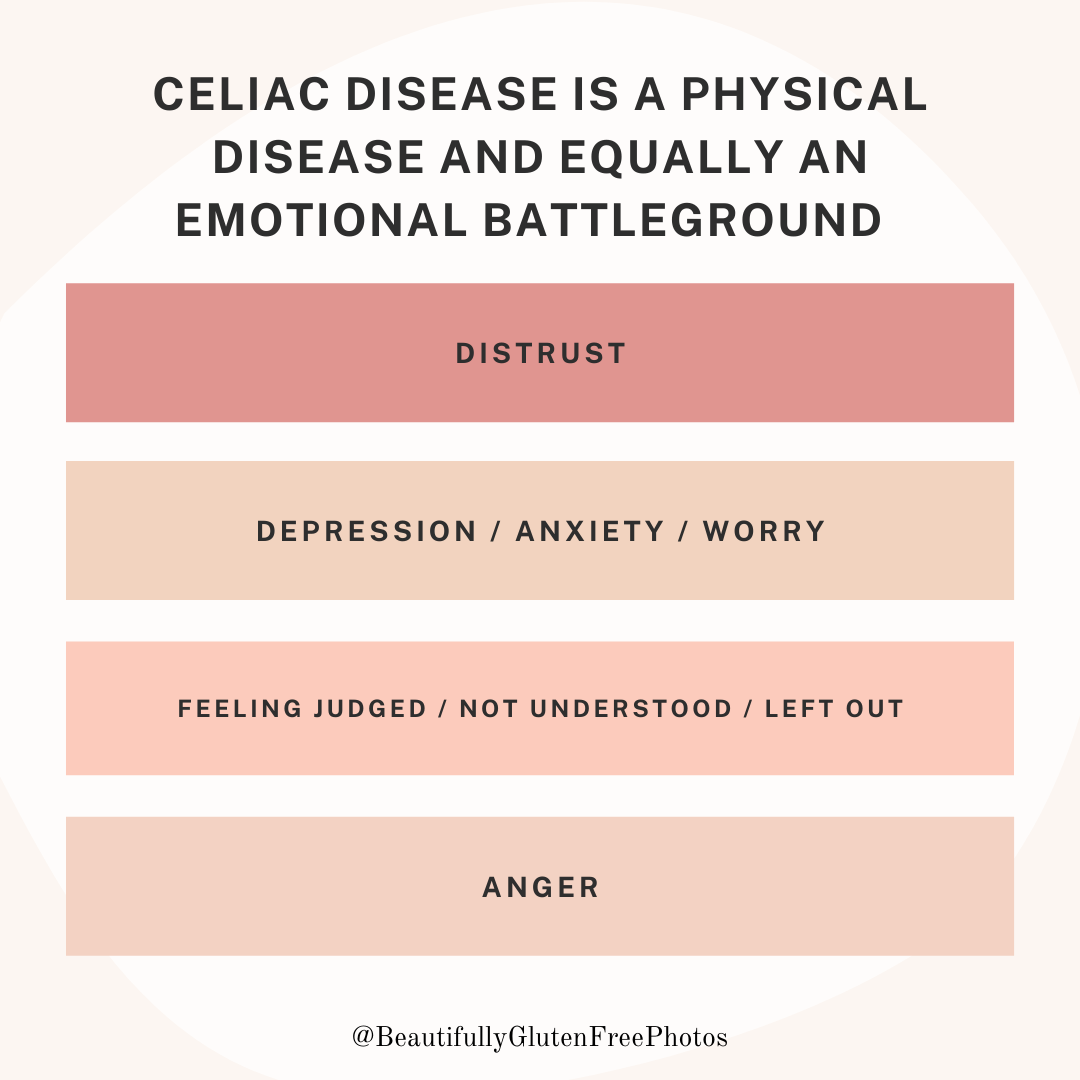Supporting Someone Who Has Celiac Disease!!
Celiac disease is an autoimmune disease that can only be treated by adhering to a strict 100% gluten free diet. The support and care from family and friends is critically important to successfully navigating and managing celiac disease. The following suggestions will help you to better support and care for the person in your life who has Celiac Disease.
1) What is Celiac Disease?
Celiac Disease is a genetic autoimmune disease that affects about 1% of the American population. The only treatment for Celiac Disease is a strict 100% gluten free diet and lifestyle. Gluten is the general name for the series of proteins found in all grains. For someone with Celiac Disease, it is the gluten proteins in wheat, barley, rye and triticale (a cross between wheat and rye) that triggers an immune response that causes the body to attack the lining of the small intestine. There are more than 200 different symptom presentations; they can be immediate, gradual, severe or silent.
Continued exposure to gluten in persons with Celiac Disease (even silent/asymptomatic Celiac), causes intestinal damage that can lead to other health complications, such as failure to thrive in children, chronic inflammation, gastrointestinal issues, malnourishment, infertility in both men and women, neurological issues, mental conditions, rashes and increased chance for certain cancers and other autoimmune diseases.
Even after symptoms are relieved and the lining of the small intestines has healed, a person with Celiac Disease must continue following a strict 100% gluten free diet, gluten can never be re-introduced. It is recommended that all immediate family members get tested and watch for Celiac Disease as there is a 1 in 10 chance that another member of the family also has or will develop Celiac Disease.
2) Create Space in the Kitchen
For a person with Celiac Disease, the safest kitchen is a 100% gluten free kitchen, but that is not always possible.
In a shared kitchen, a person with Celiac Disease will need clearly defined and dedicated spaces for their gluten free food and cooking equipment. A few kitchen tools can NOT be shared with gluten containing foods and will need to be replaced with a new and, ideally, different colored version. Purchasing new equipment in different colors is a great way to help remind everyone which tools are for gluten free cooking; decreasing the chance of accidentally using them when preparing gluten containing foods.
Any food or condiment that is served or spread with utensils that come in contact with gluten containing foods can NOT be shared (for example: condiments in jars, humus, peanut butter and/or butter to name a few). Possible solutions would be to use squeeze bottles or clearly label separate gluten free containers.
Gluten free food and cooking equipment should be stored separately from gluten containing food and equipment, especially baking ingredients.* In the refrigerator, store all of the gluten free food on the upper shelves, with the gluten containing food below. Most dishware, metal utensils and glasses, that can be washed in the dishwasher, not by hand, can be shared.
*It is worth mentioning that in shared kitchens, where the individual/individuals with Celiac Disease live in the house, many of them stop baking with gluten containing flours entirely. If symptoms are not relieved, it could be because of continued use of gluten containing flours; they spread easily on surfaces, in the air and can contaminate designated gluten free areas. Every situation is different and what works for one person or family, may or may not work for others; these are personal decisions.
3) Maintaining a Gluten Free Diet Outside the Home
It takes a very small amount of gluten, just a crumb, to damage the lining of the small intestines and trigger a negative reaction, even in people with silent/asymptomatic Celiac Disease. As a result, one of the most challenging aspects of living with Celiac Disease is eating outside the home as there are very few options that are 100% gluten free. People with Celiac Disease need to be very clear when communicating their gluten free needs with restaurant and food service providers. Unfortunately, because of cross-contact with gluten in shared kitchens, many restaurants and food service providers aren’t able to safely provide food to someone with Celiac Disease.
Cross-contact occurs when something that is otherwise gluten free comes into contact with something that has been exposed to gluten, which results in the gluten free item becoming unsafe for a person with Celiac Disease to consume. Cross-contact cannot be fixed by simply removing the gluten containing item or adjusting cooking methods. The food, dishes and utensils with which it was served need to be replaced.
4) Emotional Support
Living with Celiac Disease is hard. While there is a lot going on inside the body, it can seem, from the outside, that the person is fine; but they might not be. A lot of the symptoms, when gluten has been ingested, cause internal discomfort with no outward or public expression: fatigue, joint pain, headaches, bloating, brain fog, depression, anxiety diarrhea, and/or constipation. One of the most frequent complaints from the Celiac community is that their friends and family don’t believe that they are suffering and feel negatively judged about the need to follow such a strict diet.
Not being able to fully participate in food related events and activities, to “miss out,” to be different and draw attention to oneself because of needing to bring their own food or when ordering at a restaurant is challenging and brings up a lot of different emotions. That person may or may not want to share those feelings; give them that space and also be there to listen and believe them without judgement if they do share how they are feeling. Making comments about needing to bring their own food or about the way they order aren’t helpful. If you know about your family member or friend’s gluten free needs, there’s no need to talk about these situations; let them do what they need to do to maintain their health. If you are just learning about someone’s Celiac Disease and gluten free needs, approach the conversation with curiosity and empathy.
When food causes pain and illness, feelings of distrust and anxiety are quick to follow; which are compounded when those around them don’t believe that “just a crumb” will cause harm. If a person with Celiac Disease does not accept food prepared and made in other people’s kitchens; they are not being rude, they are protecting their health. They have very few places, outside their home, where they can relax and trust what they put in their body.
These emotional stressors may cause individuals to skip events and isolate themselves; which can lead to and/or exacerbate depression and anxiety. It cannot be said enough, supporting, trying to understand and not being judgmental goes a long way with individuals who are navigating their Celiac Disease and gluten free life.
5) Celebrate and Try Something New
Individuals and families with Celiac Disease know that there is a lot of bad gluten free food, both in the stores and in restaurants. They also know where and what the good gluten free food is; let them share it with you. Whether that is going out to their favorite restaurant or bakery, inviting you to their house to cook for you or trying what they bring to your house.
Be open and have a great time. In the end it is the connection and relationship, not the food, that is most important.
~~~~~~~
If you or someone you know would like more medical information about Celiac Disease, reach out to your medical provider. Screening for Celiac Disease begins with a simple blood test. Make sure that gluten has NOT been removed from your diet before the blood test; gluten must be present in your diet for accurate screening.
If you or someone you know would like more information about living gluten free, living with Celiac Disease or supporting someone you love please reach out. Beautifully Gluten Free is a Celiac Disease and gluten free resource that helps support individuals and families to live their best gluten free life.
Disclaimer:
While we have ten years’ experience of navigating the world as the parents of a child with Celiacs, we are not physicians, nutritionists, or other licensed medical professionals. The material and content contained in the Services is for informational purposes only and are not intended to serve as a substitute for consultation, diagnosis or medical treatment by a licensed medical professional. Please consult your doctor for any medical or health-related questions. The information contained in the Services should NOT be used to disregard medical or health-related advice from a physician or licensed medical professional.








